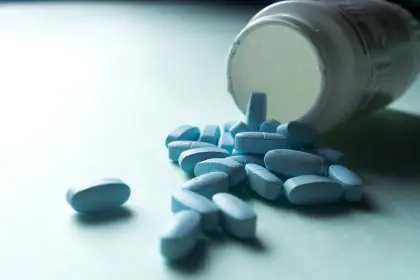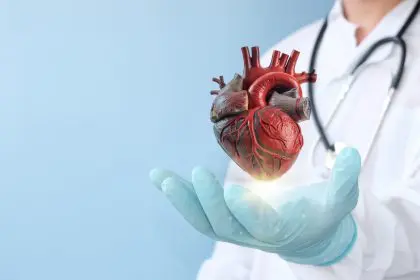That innocent-looking can of energy drink might promise enhanced focus and performance, but medical experts warn it could be silently straining your heart health. With caffeine levels sometimes exceeding a strong cup of coffee and sugar content rivaling multiple candy bars, these beverages pack a powerful punch to your cardiovascular system.
How your heart takes the hit
Unlike coffee, which most people sip slowly, energy drinks often deliver their stimulant cocktail in a matter of minutes. This rapid intake forces your heart to adapt quickly to elevated levels of caffeine and other stimulants, potentially triggering dangerous responses. Your heart rate jumps into overdrive as caffeine floods your system, sometimes causing concerning palpitations. Blood vessels narrow under the influence of stimulants, pushing blood pressure to potentially dangerous levels.
The sugar shock to your system
A single can might contain more than 20 grams of sugar, approaching an entire day’s recommended intake. This sugar surge triggers an insulin response that can lead to serious health issues. The body begins storing excess sugar as fat around the heart and arteries, while increased inflammation damages blood vessels. Over time, the resulting weight gain puts additional strain on your cardiovascular system.
Young hearts at greatest risk
Teenagers and young adults face particular dangers from energy drinks. Their developing cardiovascular systems show greater sensitivity to caffeine and sugar effects. This vulnerability can lead to early development of irregular heartbeats and premature high blood pressure. Medical experts worry these early exposures might set the stage for long-term cardiovascular complications.
Warning signs you shouldn’t ignore
Your body sends clear signals when energy drinks stress your heart. Watch for chest tightness or unexpected pain that might appear after consumption. Some people experience fluttering or racing heartbeats, while others notice difficulty catching their breath. Unusual anxiety or jitters might also signal your cardiovascular system is under stress.
Beyond the temporary boost
Regular consumption of energy drinks leaves lasting marks on your cardiovascular health. The combined impact of frequent caffeine surges and sugar overload creates a perfect storm for heart problems. Medical research shows concerning links between habitual energy drink consumption and increased risk of heart disease, dangerous arrhythmias, and even stroke in susceptible individuals.
The hidden toll on your heart
The strain on your heart accumulates silently over time. Each can of energy drink temporarily increases your heart’s workload, and frequent consumption can lead to sustained elevated blood pressure. Your heart muscles may become stressed from constantly adapting to these stimulant surges, potentially leading to weakened cardiac function over time.
Breaking the energy drink cycle
Many people turn to energy drinks when feeling tired or needing extra focus, but this creates a dangerous cycle. The initial boost eventually leads to an energy crash, prompting the desire for another drink. This pattern can stress your heart while masking the underlying causes of your fatigue.
Finding safer energy alternatives
Natural alternatives can provide sustainable energy without risking your heart health. Water remains the best choice for maintaining alertness and preventing fatigue-inducing dehydration. Green tea offers a gentler caffeine boost along with heart-healthy antioxidants. A balanced diet rich in whole grains, lean proteins, and fresh produce provides steady, lasting energy throughout your day.
What medical experts recommend
Cardiologists emphasize the importance of recognizing energy drinks as occasional products rather than daily fuel. They suggest limiting consumption to rare situations when extra alertness is crucial. For those with existing heart conditions, high blood pressure, or arrhythmias, doctors often recommend avoiding these beverages entirely.
Creating heart-healthy habits
Instead of reaching for an energy drink, focus on lifestyle changes that naturally boost energy levels. Maintaining consistent sleep patterns helps regulate your body’s energy cycles. Regular physical activity strengthens your heart while improving natural energy levels. Simple stress-management techniques can help combat fatigue without straining your cardiovascular system.
Understanding your personal risk
Your individual response to energy drinks depends on various factors including age, overall health, and existing medical conditions. Some people experience more severe reactions to caffeine and other stimulants. Knowing your personal risk factors and listening to your body’s signals helps make informed decisions about energy drink consumption.
The path to sustainable energy
True vitality comes from maintaining a healthy lifestyle rather than relying on quick fixes. By prioritizing your heart health through better choices, you can maintain steady energy levels without the risks associated with energy drinks. Your heart works tirelessly to keep you alive – it deserves care and protection through mindful choices about what you consume.
Remember, while energy drinks might offer temporary solutions, the potential cost to your heart health makes them a risky choice for regular consumption. Choose alternatives that support rather than strain your cardiovascular system, ensuring better health for years to come.















